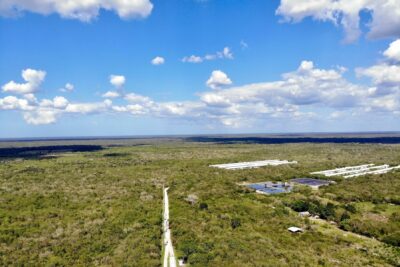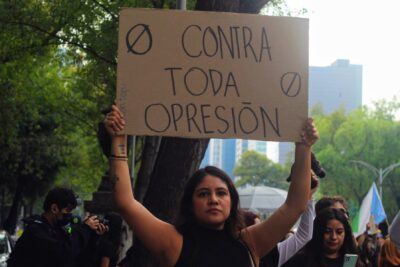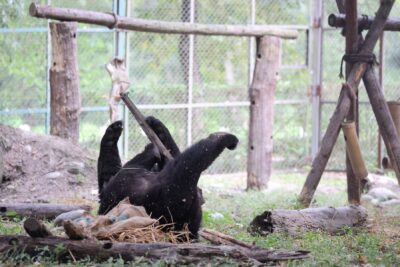Sitilpech is an indigenous Maya community located in the municipality of Izamal, approximately 61 kilometers east of the city of Merida, capital of the state of Yucatan, Mexico. There, nestled among jungle vegetation and amidst heat that exceeds 400C, its inhabitants exercise resistance to defend the lands, flora, and fauna that once belonged to one of the most transcendent Mesoamerican civilizations in world history and culture.
In a battle that is reminiscent of David versus Goliath, the people of Sitilpech are facing the leading Mexican company in pork production and marketing and one of the 20 biggest and most powerful companies in the world: Kekén and its mega-farm with a capacity of 49,000 pigs, is a company that describes its activity as “sustainable pork farming”.
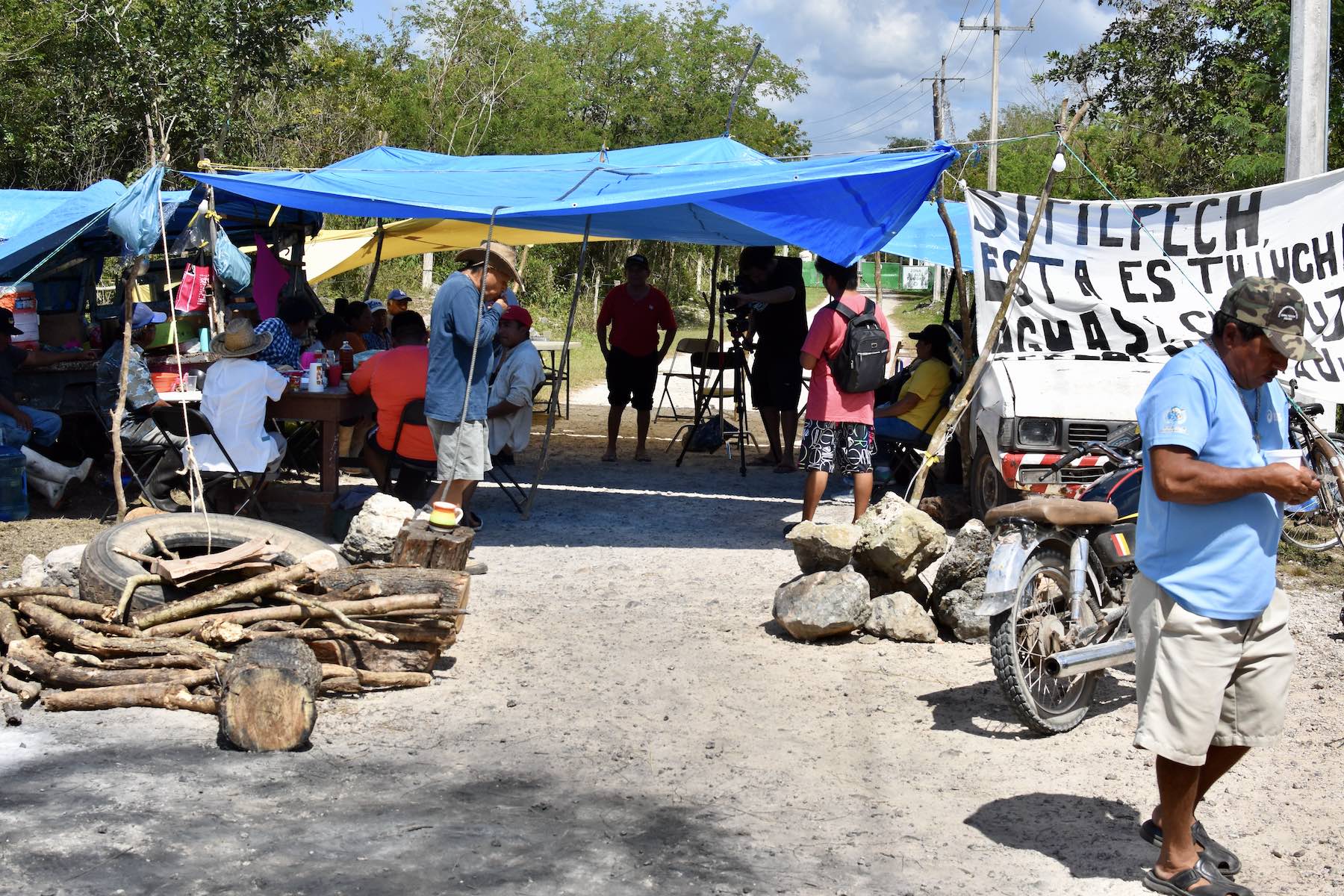
A Legal Defense of the Land Launched
Since 2021, the indigenous community has been organized in the group “La Esperanza de Sitilpech” (The Hope of Sitilpech). It has launched a legal defense process against the ecocide that Kekén is causing, and with the purpose of “demanding that the State respect and guarantee their constitutionally recognized rights, given the damage that the pig company is causing in their territory with the installation and operation of a mega-farm of around 50,000 sows and pigs – most of them babies. Damages that violate their rights to the environment, health, territory, participation in decision-making, consent, and self-determination and autonomy of the people,”. So reads the communiqué issued on February 18, 2023 by the indigenous collective together with Kanan, a local human rights NGO, and the Mexican Civil Council for Sustainable Forestry.
In this collective and legal defense work, the Sitilpech community has succeeded in getting a district judge in Yucatán to grant precautionary measures to the inhabitants, which led to the temporary suspension of the farm’s operations. Nine months after this resolution, on February 10, 2023, a Collegiate Court (i.e. at the federal level) under the proposal of Magistrate Jorge Enrique Eden Wynter García, dismissed the community’s legal case on the grounds that it had been filed “out of time”, which allowed the animal farm to resume operations. Since then, the inhabitants of Sitilpech have camped permanently at the entrance to the ejido (cooperative land) to express their disagreement with the official’s decision. Surrounded by an “unbearable smell” of pig excrement that remains 24 hours a day, blue tarps held up with ropes and sticks, blankets with handmade slogans, a couple of chairs and old tables make up the blockade, which is manned by women, men, children, and the elderly, taking turns day and night, since their mission is also to prevent the entry of trucks loaded with animals and their respective foodstuffs.
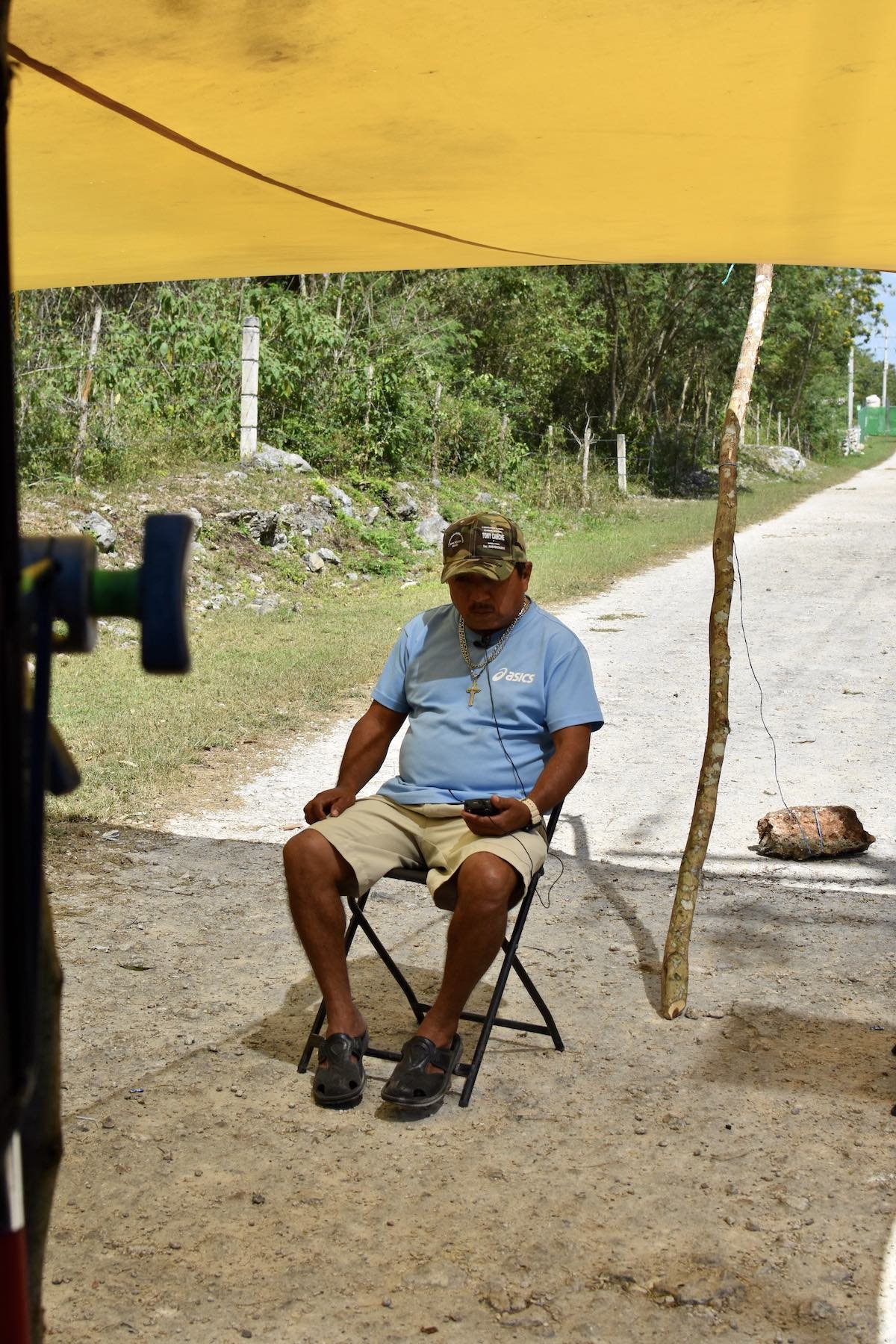
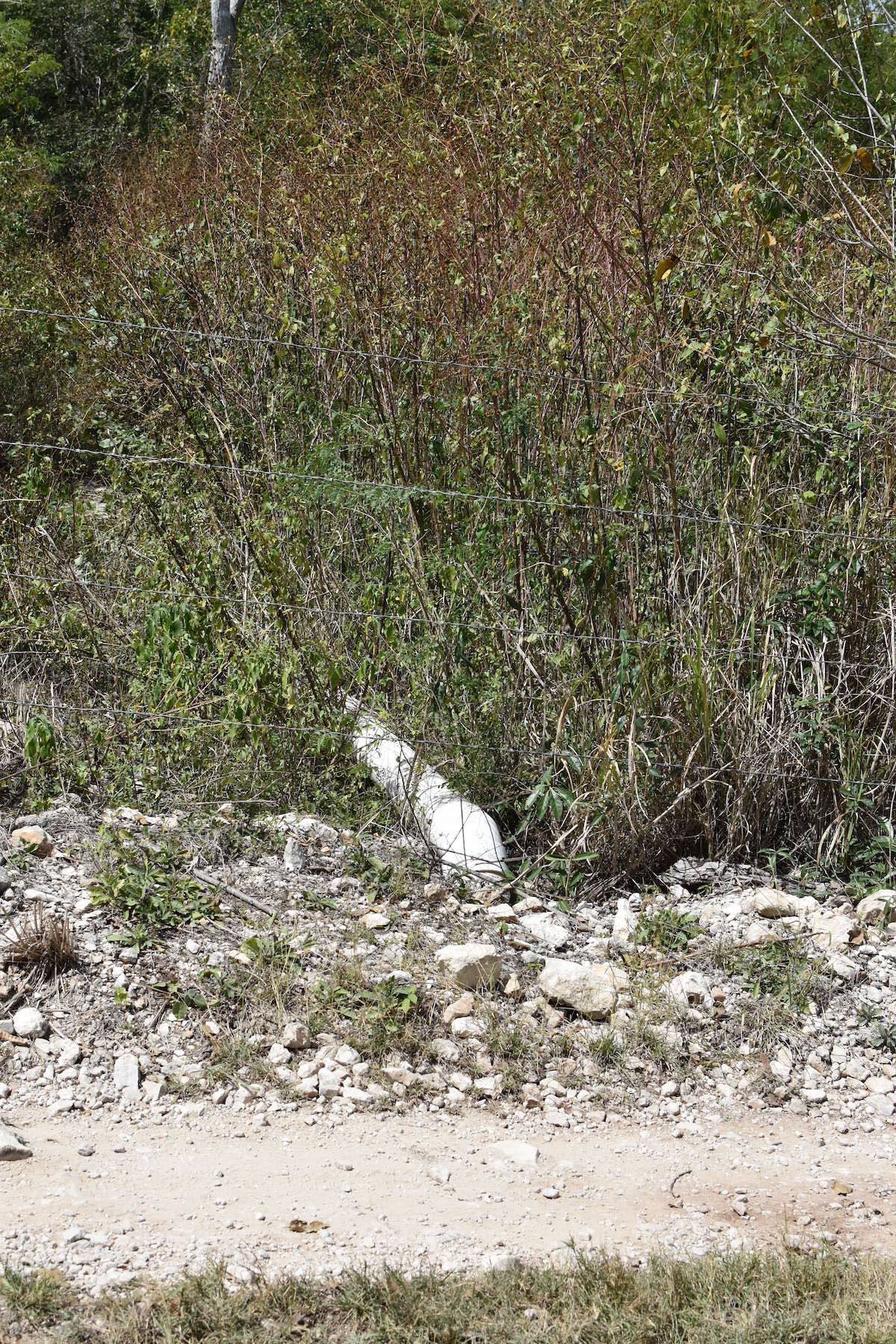
Polluted Waters and Corruption
From this camp, Don Sam, a member of the collective and local ejidatario (property owner), in an interview for Generation Vegan commented that the installations of the Kekén mega-farm and others like it have opened because the state government, headed by Mauricio Villa Dosal, and the federal agencies are in collusion with the businessmen. “When the SEMARNAT delegate arrived in Yucatán, this filth began, so I don’t know… That crafty, corrupt, mafia-like delegate sent by the president. The people of Sitilpech are fed up, fed up with this trickery that they are always doing. The people are fed up with always being trampled on,” he said.
Rafael Valencia, another member of “La Esperanza de Sitilpech”, warns that his movement aims to save community access to water and avoid what is already happening in other nearby towns: a fight over this vital resource. “The cenote behind my back has a hole in it and the pigs who die there are thrown in and it is becoming contaminated. Here, about 500 meters away, is where they drain the water from the farm, it is not treated, there is no treatment, if you go there is a lagoon where the pig shit is thrown”. Rafael says he is concerned that a group of environmentalists have already analyzed the water, “and they warned us that if it continues like this in three years we will not be able to use it. We are fighting for life and health, nobody buys that.”
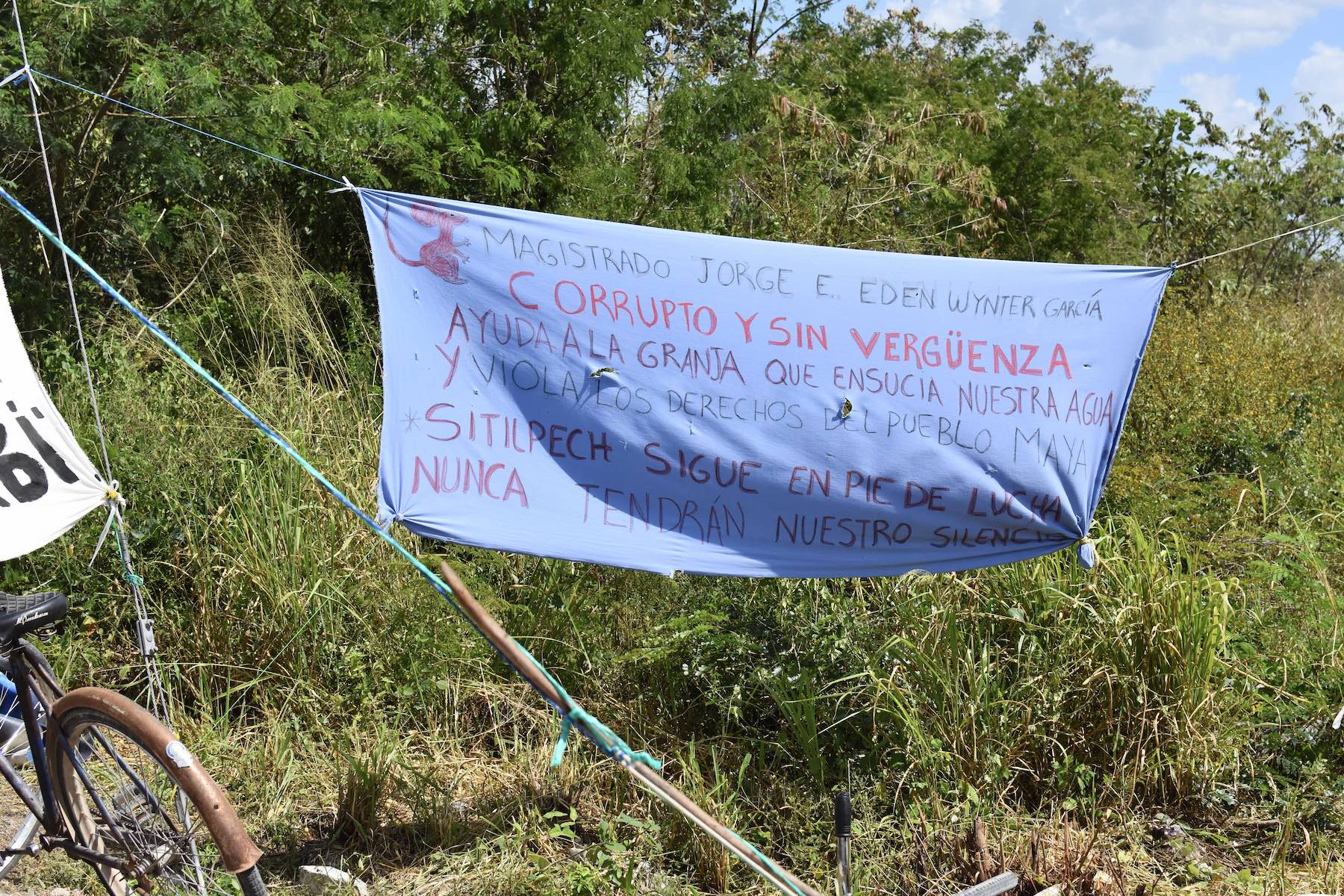
Institutionalized Racism
Another factor contributing to the vulnerability of indigenous populations such as the Sitilpech community, and how they are forced to defend their territory is the institutionalized and normalized racism in the country. According to the Cultural Information System, there are currently 71 indigenous ethnic groups in Mexico; some of them have resorted to processes of political and territorial autonomy in the search for their self-determination, given that they are historically racialized communities and discriminated against because of their origin. According to the National Survey on Discrimination (ENADIS) conducted in 2017 by the National Institute of Statistics and Geography (INEGI), 75.6 percent of the indigenous population considers that they are little valued by most people and 49.3 percent perceive that their rights are little or not respected at all.
As an example of the above, Villebaldo Pech Moo, lawyer and member of the community, points out that in the process of establishing the mega-farms, prior consultation with the indigenous community was overlooked, as dictated by Convention 169 of the International Labor Organization, ILO. “Here the population is not being taken into account, they were never consensual, they were never consulted if they really wanted a farm.”
In Yucatán there are currently 222 pig breeding, fattening and slaughtering farms distributed throughout the state and owned by companies such as Producción Alimentaria Porcícola (PAPO), Agroindustrias Moba, GAL Porcícola, Productora Pecuaria de Yucatán, and Unión de Aparceros Chapab, among others. The Mayan communities of Kinchil, Homún, Chapab, Maxcanú or Tixpéual, are in similar conditions of plundering and exploitation of natural resources, such as water, and under the abuse of cheap labor, just as in Sitilpech.
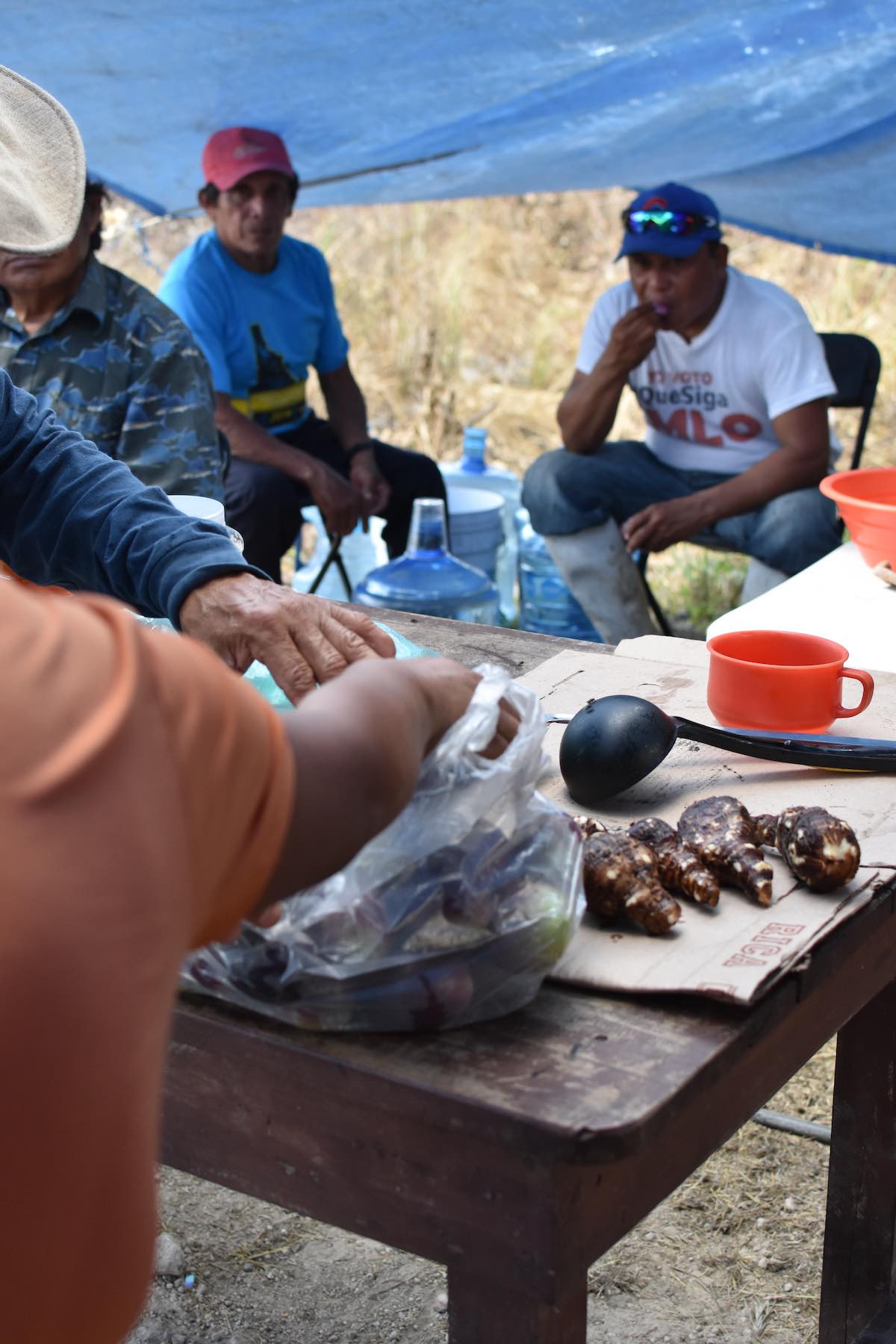
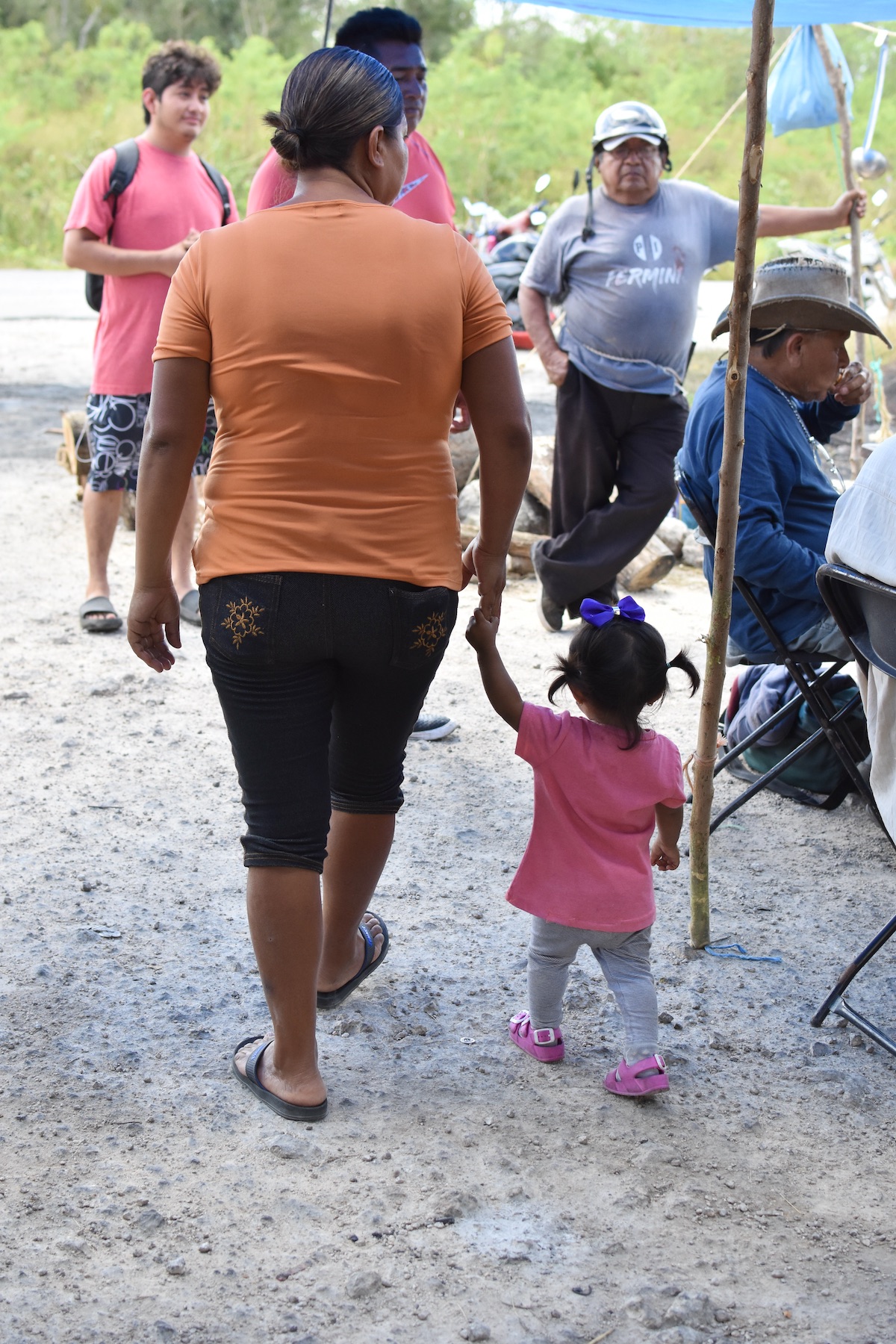
Attacked by Police
As soon as the encampment was set up at the gates of the Kekén mega-farm, the tension escalated and the police forces of the municipality of Izamal and the Yucatán Public Security Secretariat began to arrive. Finally, in the early hours of February 18, around 3:00 am, approximately 70 riot police with shields and batons arrived to repress, besiege, and physically attack the 20 people, mostly women and children, who were at the blockade. Some eyewitnesses state that minutes before the intervention “the town was strangely left without telephone service or internet signal”. Those who were there were stripped of their cell phones so that they could not document the attack, while chairs, tables, utensils, and tents were stolen, and motorcycles and vehicles were damaged.
The following day, on Sunday, February 19, 2023, through an indirect injunction filed by residents of the community, a federal judge in Yucatan granted the precautionary measure “granting a flat suspension so as not to cut off the people, as well as to cease the acts of aggression exercised against them by the Yucatan public security secretariat.”
The Protestors’ Pledge
However, the protesters vow to resist as long as there are pigs inside the farm and not rest until the danger of contamination has left their town. “We will be here until we can’t take it anymore. If it’s going to take us 10 years, 20 years, we’re going to stay here,” says Pedro Pech, from the camp.
Guest blog by Laura Sainz
References:
INEGI. (2020) Estadística a propósito del día internacional de la eliminación de la discriminación racial. Instituto Nacional de Estadística y Geografía. México
INEGI. (2017). ENADIS 2017 Encuesta Nacional sobre Discriminación. Instituto Nacional de Estadística y Geografía. México.
Sistema de Información Cultural (2023)
CNDH. (2018) Análisis Situacional de los Derechos Humanos de los Pueblos y Comunidades Indígenas.
